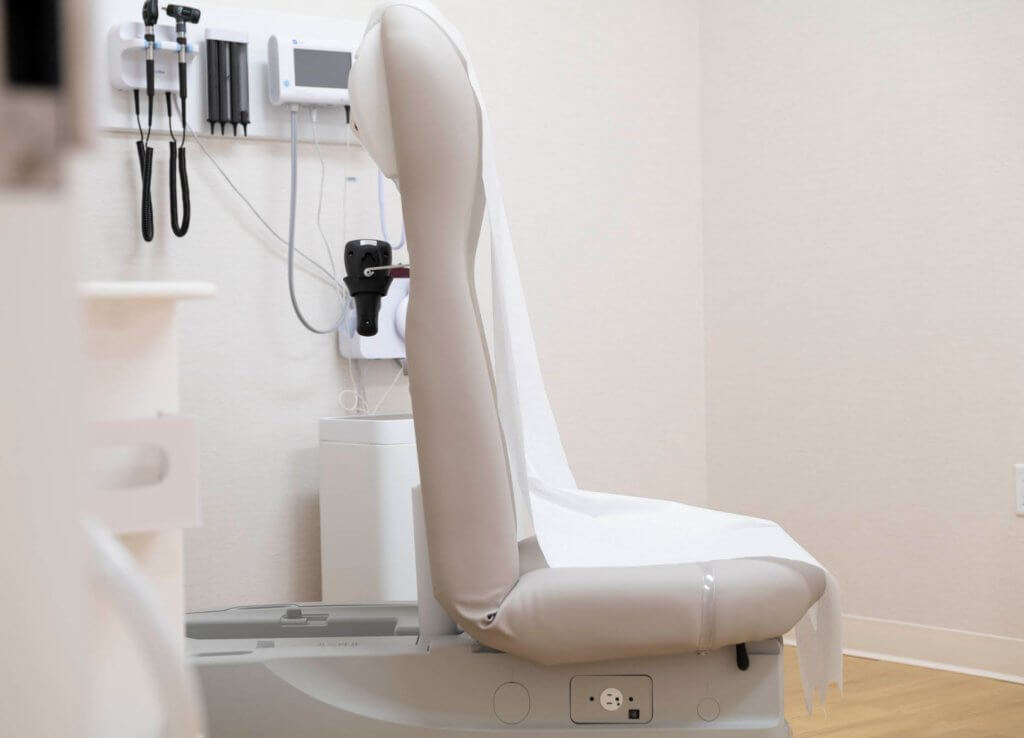Transforming Workplace Wellness: The Power of On-Site Clinics with Eden Health
What are Onsite Clinics?
Onsite health clinics allow employers to offer eligible employees onsite medical services by licensed providers at little to no cost. Having an onsite clinic offers a convenient solution for employees to address their health concerns without leaving the workplace.
While some employee health clinics are hosted onsite, others are located near the business’s office or in a shared clinic, giving staff easy access to services. Providing a range of benefits for both employees and employers, worksite health clinics have become increasingly common among companies aiming to better serve the needs of their employees.
A Guide to Onsite Clinics
Because these onsite wellness clinics have expanded to treat a wide variety of conditions, they are typically referred to as “health and wellness centers.” These onsite medical clinics can drastically reduce the time employees spend away from work for medical appointments. Onsite clinics for employees provide an array of medical and health services related to general first aid, primary care, acute and specialty care, occupational health, and beyond. Healthcare providers can give physicals, treat minor injuries, administer wellness exams, provide nutrition counseling, and even manage chronic conditions. Employees can seek guidance and treatment for various conditions and receive specialty referrals as needed. With onsite medical care, employers can promote a culture of proactive health management, reducing absenteeism and boosting productivity.
Just like healthcare plans, employers can choose to cover only participating employees or extend benefits to their spouses and dependents.
Employers offer onsite health services as a health benefits option for workers. However, additional off-site clinics are often located conveniently close to the workplace. With the advent of onsite care clinics, businesses can ensure that their employees receive timely and efficient medical attention. These clinics are common for companies that have multiple offices or employees at different worksites. For ease and accessibility, many of these clinics offer an online portal where employees can schedule visits or pay for additional services. Therefore, employees can access services and products that they would otherwise have to leave work to utilize.
What Onsite Clinics Mean for Your Company
Onsite Clinics are Good for Business
Employer onsite health clinics serve as a testament to a company’s commitment to the well-being of its workforce. Considered one of the most popular additional benefits by employees, onsite clinics demonstrate an advanced investment in employee wellness. As a result, they can help you retain your most talented individuals. This low-cost, high-quality healthcare is a telltale sign that you care about your staff. Plus, these programs are a beacon in the community, signifying your dedication not just to your employees, but to the larger health care landscape as well. Low employee turnover rates save you money in the long run.
Onsite clinics can also help you increase workplace productivity, as your employees can get quick medical fixes without leaving the worksite. Employees spend less time away from the office, as they are no longer traveling to doctor’s offices or waiting for outside treatment.
Workplace clinics drive employee and company savings and serve as a beneficial program for both. The corporate clinic services reduce loss in annual profits by ensuring employees have easier access to services. For instance, employees who don’t have onsite clinic access may visit the local ER or urgent care for minor services, raising out-of-pocket expenses and wait times.
Additionally, you can save on medical costs by reducing transportation expenses or eliminating pricey hospital visits. When employees have easy access to a high-quality medical team, preventative care becomes commonplace. When medical issues are addressed before they get serious, you reduce the amount of sick time your employees take, saving you money and keeping your employees happier and healthier.
Customization Options
Regardless of your company’s size, employer-sponsored health clinics can serve employees by offering preventive care, annual screenings, acute care, or other services at minimal to no cost. Private companies, public employers, and union groups can all sponsor these facilities.
Each clinic is unique as it reflects the local community’s needs and existing resources. Staffing, services, and cost-sharing strategies can be customized to suit the needs of your organization.
Benefits of an Onsite Clinic
Onsite employee health clinics offer in-person and virtual care so that employees have access to their personalized care team 24/7. At the onsite clinic or near-site clinic, patients can address urgent care needs such as flu symptoms, receive annual physicals and vaccinations, get behavioral health screenings, and much more — all in one place. Now, clinics include COVID-19 daily screening to prevent outbreaks and ensure that businesses can continue to operate safely. In the future, onsite clinics may also deliver COVID-19 vaccinations.
In addition to in-person care during business hours, patients can receive a virtual diagnosis via text message, phone call, or video chat when necessary. Employees will no longer have to schedule outside treatment, which potentially prolongs an illness if it is not treated promptly. Furthermore, offering workplace medical services encourages early treatment and preventive care, thereby diminishing the potential severity and duration of illnesses and elevating overall patient medication compliance and outcomes.
Moreover, organizations can reduce employee copays by offering a comprehensive fixed-fee model that bundles most of their costs into a manageable monthly fee.
Who Leads the Onsite Clinic?
Most facilities are led by a physician’s assistant or nurse practitioner, although many onsite clinics also have a physician on hand to administer care. An onsite doctor ensures that employees receive immediate medical attention if necessary. They may work part-time or full-time alongside supporting staff based on the clinic’s needs and resources. Physicians play a vital role: they have extensive training to provide enhanced care and manage advanced treatment plans.
Depending on the clinic, employees have access to a wide range of services that require specialized staff, such as pharmacy, specialty care, occupational therapy, physical therapy, dentistry, and optometry. If a patient needs specialist referrals, clinics coordinate with local providers in the patient’s network and can schedule expedited appointments to reduce wait times.
Sometimes, clinics encompass multiple medical specialties onsite. In these cases, patients can receive comprehensive care in one location and avoid fragmented care or complicated, time-consuming transfers.
Additionally, many onsite clinics provide access to telemedicine to supplement in-person treatment. This 24/7 remote care covers after-hours, weekend, and holiday needs.
Concierge Employee Healthcare Through Eden Health
Enhance the overall wellbeing and health of your employees through the addition of an onsite clinic. Eden Health provides personalized treatment plans so employees can obtain immediate care and achieve long-term mental and physical health goals. Using the expertise of providers, benefits experts, and software engineers, the platform easily integrates with most insurance plans to offer first-rate health services at an affordable cost. Employees can consolidate their healthcare needs and access 24/7 care through the app, eliminating the burdens of fragmented care. Employers can also organize onsite wellness pop-ups in the office.
Available in 41 states (with additional state coverage pending), Eden Health empowers employees to control their healthcare through the app. For more information on how you can adopt Eden Health into your employee health benefits packages, contact a member of our team today.
This blog is intended to be informational in nature. The information and other content provided in this blog, or in any linked materials, are not intended and should not be construed as medical advice, nor is the information a substitute for professional medical expertise or treatment.
If you have any questions or concerns, please talk to your Care Team or other healthcare provider. Never disregard professional medical advice or delay in seeking it because of something you have read on this blog or in any linked materials.





